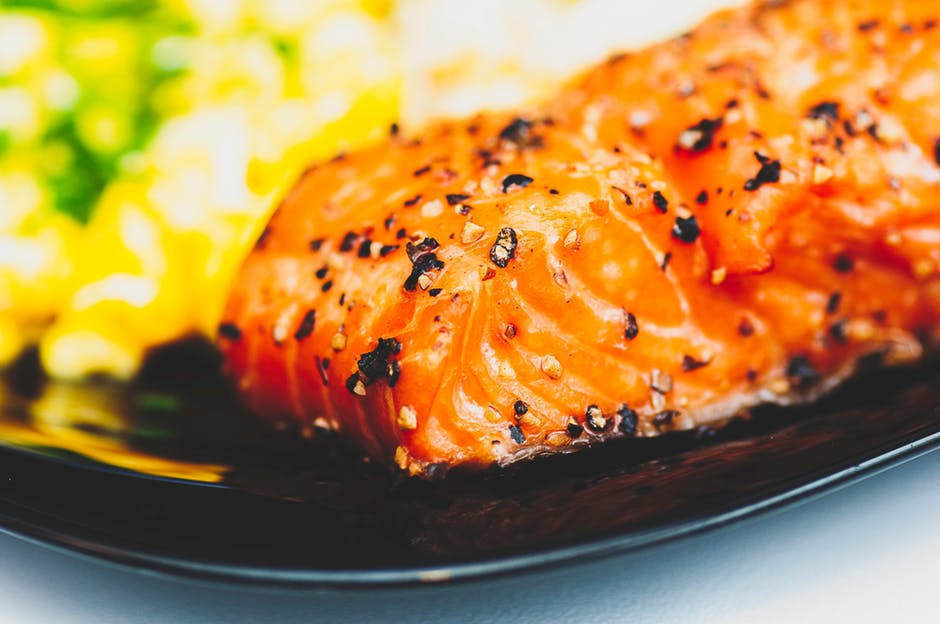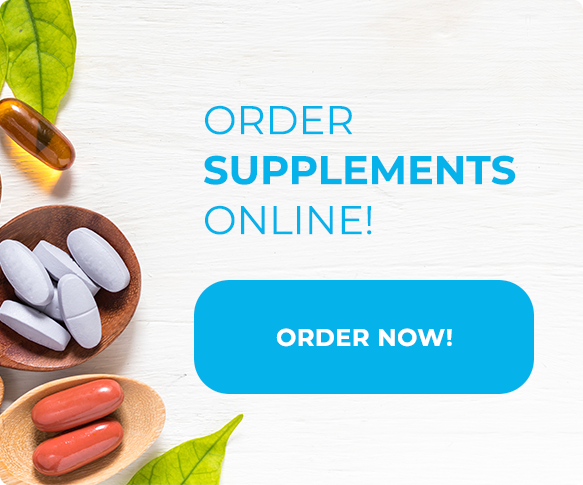One person dies about every 36 seconds from a cardiovascular disease in the United States. That shakes out to about 659,000 people a year or 1 in 4 deaths.
With those sorts of numbers, taking care of your heart is more important than ever. It might seem like a daunting task, but on top of regularly visiting your doctor for checkups, there are actions you can take every day to stave off common heart problems.
One of those is including more heart healthy foods in your diet. We all know that fruits and vegetables are good for us and good for improving heart health, but that’s not all. So keep reading our list to learn more about foods that are good for the heart.
1. Salmon & Other Fatty Fish
Omega-3 fatty acids are crucial for our overall health, and salmon is a great source of them. They help lower your level of triglycerides, which are a type of fat that can lead to heart disease. They also have an anti-clotting effect on the blood, which is important for your circulation.
Fatty fish also include options like mackerel, sardines, and tuna. Most health professionals recommend having at least 2 servings of oily fish per week in order to reap the benefits of improving heart health. If you’re not big on eating fish, fish oil supplements are another option.
2. Nuts
Just like oily fish, nuts like walnuts and almonds have lots of fats that our bodies need to function properly. These fats, called monounsaturated fats help lower your LDL cholesterol (your “bad” cholesterol) and raise your HDL cholesterol (your “good” cholesterol).
Not only is eating a few servings of nuts associated with a lower risk of heart disease, but they also have a number of other important nutrients. These include magnesium, copper, and manganese.
Almonds, too, have a long list of beneficial micronutrients and offer many of the same fat benefits as walnuts. But almonds have shown that they can do even more than just protect your heart: they’re great for improving your sleep, too.
3. Seeds
Seeds are another great way to pack in your omega-3 fatty acids from a plant-based source. Chia seeds, flax seeds, and hemp seeds are all great options, and they also include heart-healthy nutrients and fiber.
Finding more places to slip seeds into your diet can help address a number of causes of common heart problems, such as inflammation and high blood pressure as well as cholesterol and triglyceride levels.
Seeds are also an easy option to mix in here and there. Add some to your morning oatmeal or cereal, drop a serving into your smoothie, or use some as a crunchy topping on a salad.
4. Berries
Fruits and vegetables are a staple of any healthy diet, but berries really take the cake when it comes to heart health. They’re packed with antioxidants, which help protect against oxidative stress and inflammation that can cause heart disease.
Berries are such an easy thing to snack on, or even a great choice for a quick and refreshing dessert. And when they’ve been associated with lowering cholesterol, blood pressure, body mass index (BMI), and markers of inflammation, why not give them a try?
Raspberries in particular are bursting with polyphenols, which are a specific type of antioxidant. They also have high levels of fiber and vitamin C.
5. Chickpeas & Other Beans
Chickpeas and other beans (including lentils) are legumes that are unmatched when it comes to delivering soluble fiber. This is the type of fiber that can help lower your LDL cholesterol, made up of resistant starch that takes much longer to digest. It’s processed by the beneficial bacteria in our digestive systems.
Beans have been associated with improving heart health not only by reducing LDL cholesterol levels, but also by decreasing triglycerides, blood pressure, and inflammation.
Darker colored beans, like black beans and adzuki beans, have the highest levels of the phytochemicals that help reduce inflammation.
6. Whole Grains
Whole grains often contain the kind of fiber that helps us lower our LDL cholesterol. But you have to know what you’re looking for. For a grain to really be “whole,” it has to still contain the germ, the endosperm, and the bran. These are the nutrient-rich parts of the grain.
Some options that are easy to find at the grocery store include brown rice, oats or oatmeal, barley, and quinoa. Studies have shown that adding an extra 1 or 2 servings of whole grains per day can decrease your risk of common heart problems by 10-20%.
7. Olive Oil
If you’re looking for more ways to pack healthier, monounsaturated fats into your diet, olive oil is a great choice. It’s packed with antioxidants, helping to reduce inflammation. It also has high levels of oleic acid, which helps prevent hypertension, otherwise known as high blood pressure.
This is one of the easiest foods that are good for your heart to incorporate into your daily diet because it’s so versatile. Use it for cooking, drizzle it over cooked dishes, or use it as the base for homemade salad dressing.
8. Dark Chocolate
Many of us who have a bit of a sweet tooth are ready to hear all about the benefits of dark chocolate. But it’s not just something we say to justify that bite of dessert. Dark chocolate really can help support a healthy heart.
Cacao, the plant that chocolate comes from, is high in flavonoids. Flavonoids can help lower your blood pressure, prevent blood clots, and act as an antioxidant. They also help repair cell damage.
On top of everything else, choosing dark chocolate means you’re choosing an option lower in sugar, which is better for your health all around.
9. Avocados
Avocados are in fact a fruit, and like some of the other heart healthy foods on this list, many of their benefits come from their monounsaturated fats. They help lower cholesterol.
These fruits are also high in potassium, another nutrient that supports heart health. Keeping up your potassium intake can help decrease your blood pressure, which helps take care of your heart.
10. Leafy Greens
Leafy greens include vegetables like spinach, kale, collard greens, or swiss chard. You should be packing these into your diet for a lot of reasons beyond improving heart health, but they’ll help you there, too.
They’re a great source of vitamin K, which helps protect your arteries and support proper blood clotting (not too much, not too little).
They also have dietary nitrates that promote cardiovascular health by reducing blood pressure, keeping arteries flexible, and improving cell function along blood vessels.
11. Tomatoes
Lycopene is the star of tomatoes. This is what gives tomatoes their red color, and it’s a powerful antioxidant.
Eating raw tomatoes can help increase your HDL cholesterol, which in turn can help remove excess cholesterol and plaque from your bloodstream.
Cooking tomatoes, however, has its own benefits. When tomatoes are cooked, they tend to release higher levels of lycopene, which means there’s more available for your body to absorb.
12. Garlic
Garlic has been used to treat various ailments for centuries, but science is starting to back up the claim on its medicinal properties. It’s packed with allicin, which has a number of beneficial effects on the body.
Consuming garlic can help reduce blood pressure and cholesterol as well as inhibit platelet buildup.
The best way to get these benefits from the allicin in garlic is to either eat it raw or crush it and let it sit for a few minutes before cooking it.
13. Apples
We’ve all heard the expression, “An apple a day keeps the doctor away,” but really an apple a day might help keep the cardiologist away. Apples contain pectin, which is a type of soluble fiber that helps lower cholesterol.
They’re also high in antioxidants. These compounds do a lot to reduce inflammation and the buildup of plaque in our arteries.
The best way to get all the benefits an apple has to offer is to eat it with the skin on. That’s where a lot of the fiber is.
14. Spices
It might seem challenging to figure out how to fit all of these foods into your regular diet. But in a lot of cases, the spices you use to flavor your food can help protect against common heart problems, too.
Many spices popular in Indian cuisine, for example, have proven to protect against inflammation and other damage caused by high blood sugar and cholesterol. This includes spices like turmeric, ginger, black pepper, and coriander (or cilantro).
Turmeric gets its yellow color from curcumin, which has antioxidant properties. The active component of ginger, gingerol, fights inflammation. Black pepper is rich in magnesium, which promotes healthy blood vessels and blood flow. Coriander seeds can help lower cholesterol.
Eat Heart Healthy Foods, Protect Your Heart
Many of these heart healthy foods are easy to pick up on your next grocery store run. With every meal, you can choose foods that are good for the heart and protect that muscle that works so hard to keep you alive every day. The more you do on a consistent, everyday basis, the better shape you’ll be in.
If you have more questions about improving heart health or common heart problems, feel free to reach out and schedule an appointment with us.





